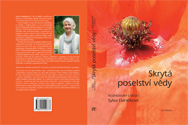
"It was 'good' writing at its worst." Julia Cameron said this in her book, The Right to Write. What can be good and still be bad?
Cameron was referring to a woman whose sentences "marched like dutiful soldiers" – that is, her sentences moved along in perfect order, mechanically, but no one was speaking. In a word, robotic. When we receive a letter from a bank or insurance company, we often share Cameron's feelings: Who's talking to me? Where's the human voice?" The words lie flat on the page, lifeless, cadaverous.Without recognizing it, our writing can also become too calculated, too mechanical, too flawless, too cerebral, too cool, and too inhuman. Cameron believes writing should "snort with attitude." She demands that writing be crisp, crackling, prickly, pungent, and raspy – that's her recipe. I'd sprinkle on some feisty and a dash of friendly; these two add a tang to keep the reader reading.
Most of us like our reading to "snap, crackle, and pop." We want our writers to take a chance, to be bold in expression. Who wants to read ideas hiding behind the walls of grammatical security? I want the writer to say "Here I am – this is what I think whether you like it or not." But not all readers feel this way. Judging from a number of pieces I have read, some readers like their writers to tiptoe around controversy, to offer cold facts and refuse to warm them up to body temperature. I like language that's piping hot; some like it at room temperature; some like it cool. I'm on Cameron's team. I'd like to know how you feel.
This week I was handed a lengthy advertising supplement intended to attract international cooperation. It looked slick, with striking photography. I started reading with anticipation; at page four, I stopped. No one was speaking to me. It read without serious error, but I fear Julie Cameron might have called it android prose. Remember: some people prefer this style; some people know only this style.
A reader of these pages asked about the pronunciation of debt. [I welcome all questions, challenges, and opinions about these essays]. Well, it's simple: don't pronounce the b. The word is pronounced "det." According to the English language maven, David Crystal, some authorities in the 1500s thought people should be reminded that the word came from Latin, and that the Romans had a b in the word, and so, in a flurry of Neo-classical devotion, they inserted a b in the printed English word. They must have used an excellent glue, because the b is still there, and still confuses the pronunciation of non-native speakers. But, unfortunately, whether you have a "debt" or a "det," you still owe money.
Another reader asked if the me is correct in the sentence, "He is older than me." Idiom says it's okay, as long as we recognize that idiom usually means the mistakes we hear all the time. Correctness, on the other hand, says "wrong." The sentence really says, "He is older than I am." Let's look at another example. He runs faster than me (wrong) versus He runs faster than I run/ I do (correct). I am simply extending the sentence to its logical conclusion.
Sometimes I hesitate speaking too correctly; it often sounds professorial, almost self-conscious. So rather than saying, "I think you know more than I," (which is correct) I add the logical word, and it sounds less pompous: "I think you know more than I do/know."
Now here's a question for you. Beware: this is a trick question. Should I or me be in the blank? "She loves chocolate more than ______." The answer comes next month.
RICHARD HAAS,
Oddělení studia jazyků ÚJČ AV ČR, v. v. i.












 English
English
